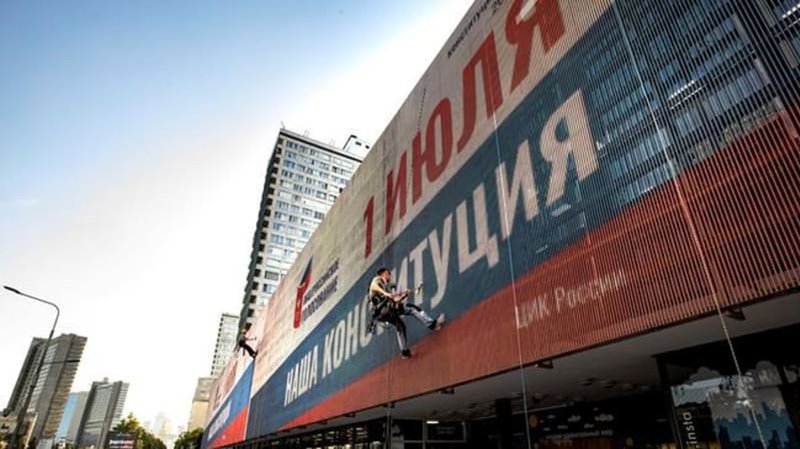
Russian vote on extending Putin’s rule until 2036 nears end
MOSCOW — Russian President Vladimir Putin’s main political project of the year — a constitutional vote that would allow him to extend his rule until 2036 — drew closer to completion as Russia held a nationwide ballot on Wednesday.
The vote on the amendments that would reset the clock on Putin’s tenure and enable him to serve two more six-year terms has been going on for a week but Wednesday was its final day. For the first time in Russia, the polls were open days ahead of time to help reduce crowds on election day and to bolster turnout amid the coronavirus pandemic.
Putin is all but guaranteed to get the result he wants following a massive campaign to get Russia’s voters to say “yes” to the changes. Ironically, however, the plebiscite intended to consolidate his hold on power could end up eroding his position because of the unconventional methods used to boost participation and the dubious legal basis for the ballot.
Gleb Pavlovsky, a political analyst and former Kremlin political consultant, said Putin’s unrelenting push to hold the vote despite the fact that Russia is reporting thousands of new coronavirus infections each day reflected the Russian leader’s potential vulnerabilities.
